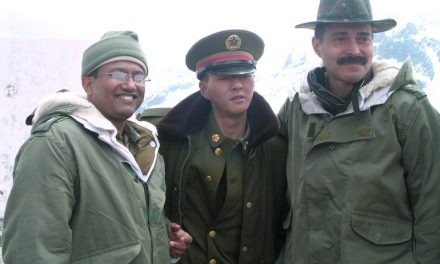Growing up in Britain as the offspring of migrants has not been easy; I know that were it not for the wisdom of my parents, the support of numerous elders, and most importantly the direction given by the Shabad Guru, I would not have been able to make sense of my identity as a Sikh living in England. Whether you call that kirpa or Hukam, I was undoubtedly a beneficiary, unlike many of my generation.
It’s a great thing to want to explore how you came to be where you are, and for many of my kith and kin that specifically means learning how the generations who came before, grew and sacrificed in equal measure to provide us with this opportunity to call ourselves Sikh. I applaud any person who wishes to explore what it means to be Sikh – to take that journey of travel unknowingly into their past, to analyse the circumstances they find themselves in now, and to then question their very being.
But to do this on a national stage, as a person with a considerably public profile, through the State broadcaster, belies the authenticity of that journey. It brings into question what the aim of this journey is, what angle is being presented to a watching audience, and what agenda is being driven through.
As a community that has continued to struggle against the shape of the State narrative that is employed to categorise and depict us – the Guru Panth, this Sikh Marg – it is reasonable to warrant such productions as undesirable. Moreover, it’s commissioning adds credence to the notion that mainstream media acts as an extension to the powerful and elite, whose representation of minorities as well as those outside of power, is self-serving and produced to continually present us as the ‘other’.
I founded naujawani as a platform to analyse what goes on around us; having the right to freedom of expression has been at the heart of that undertaking. But with that freedom comes responsibility. And in this case that responsibility was to be sensitive to the wide range of issues that were stop-overs on the journey – something in my opinion that ‘Young, Sikh and Proud’ failed to do.





